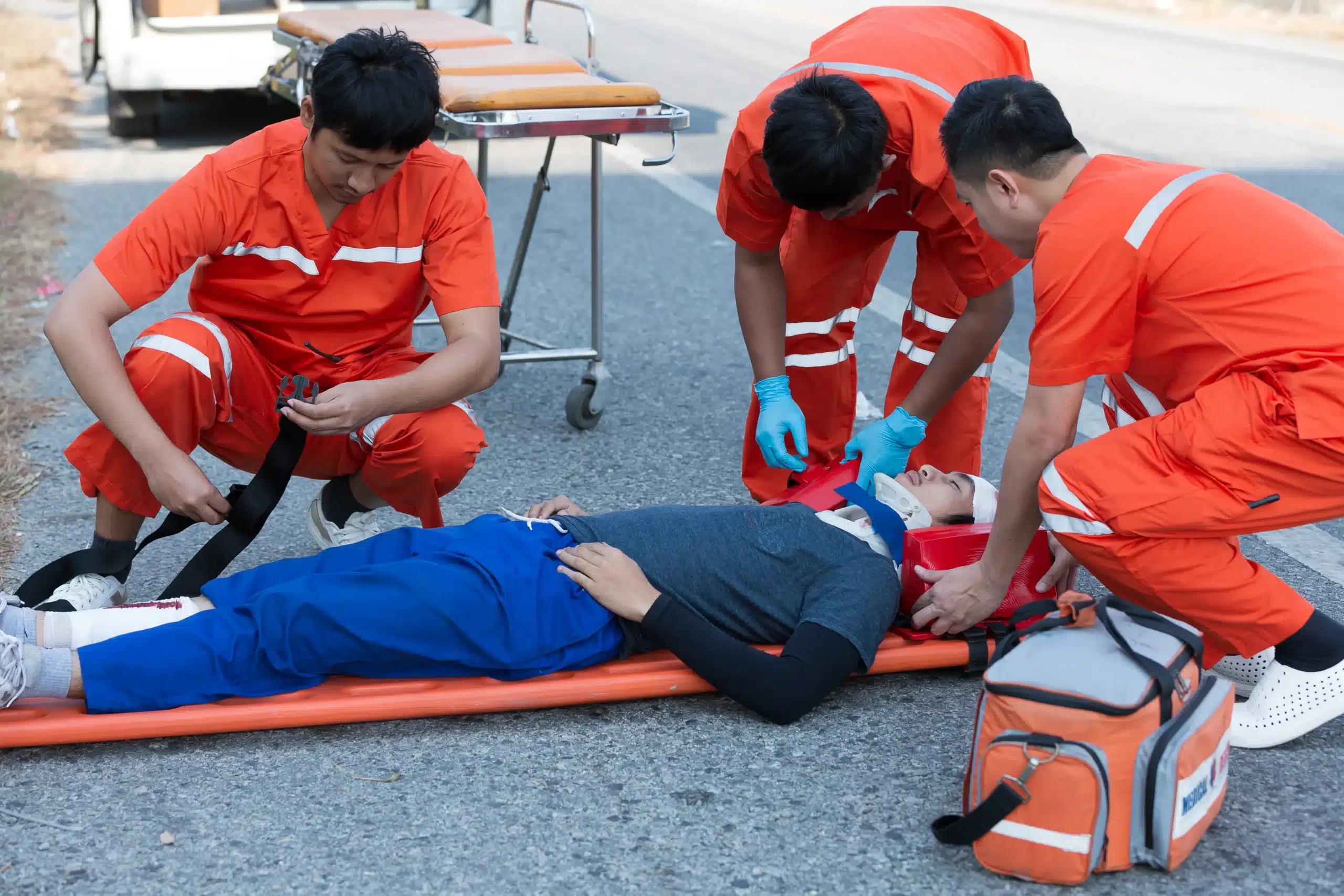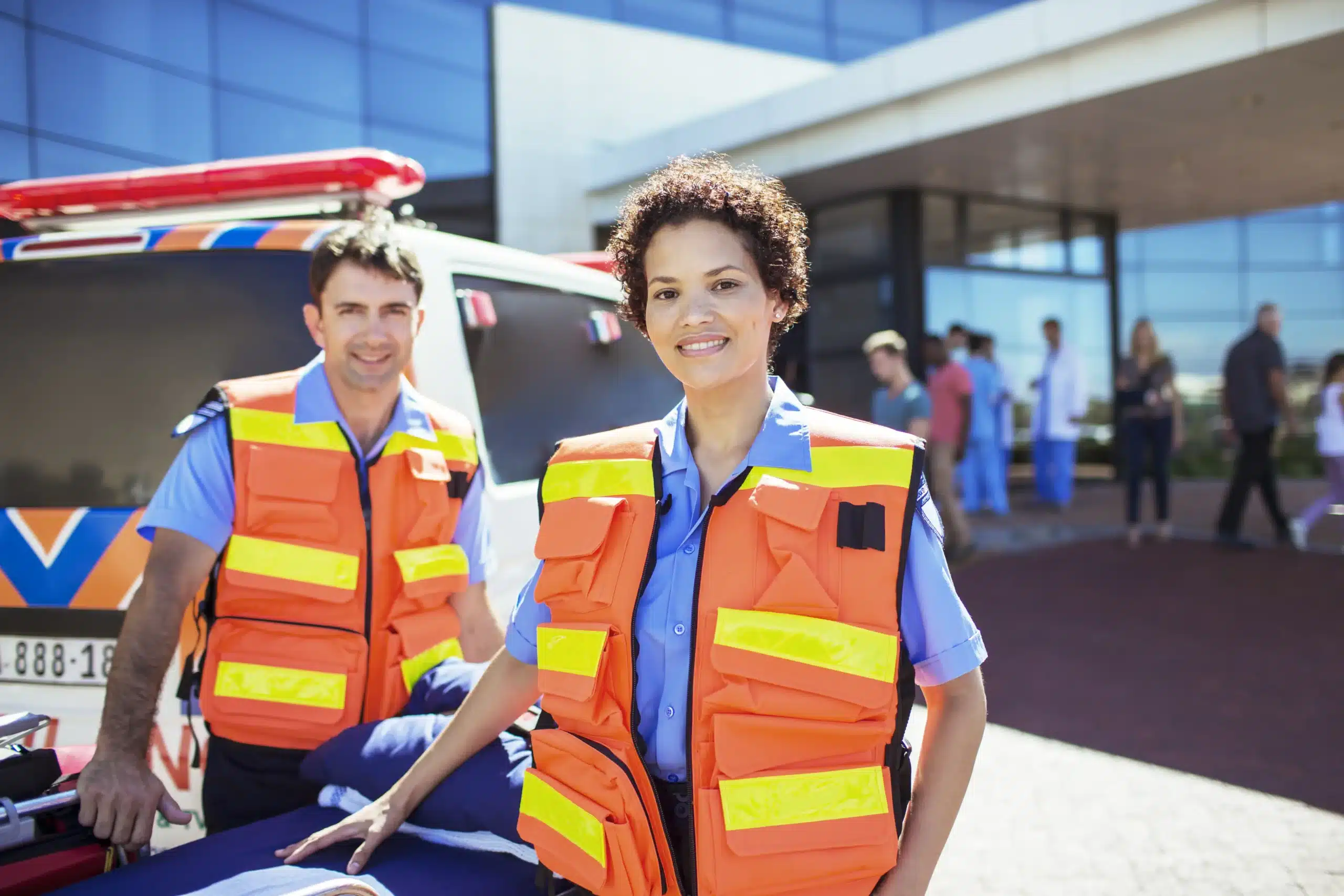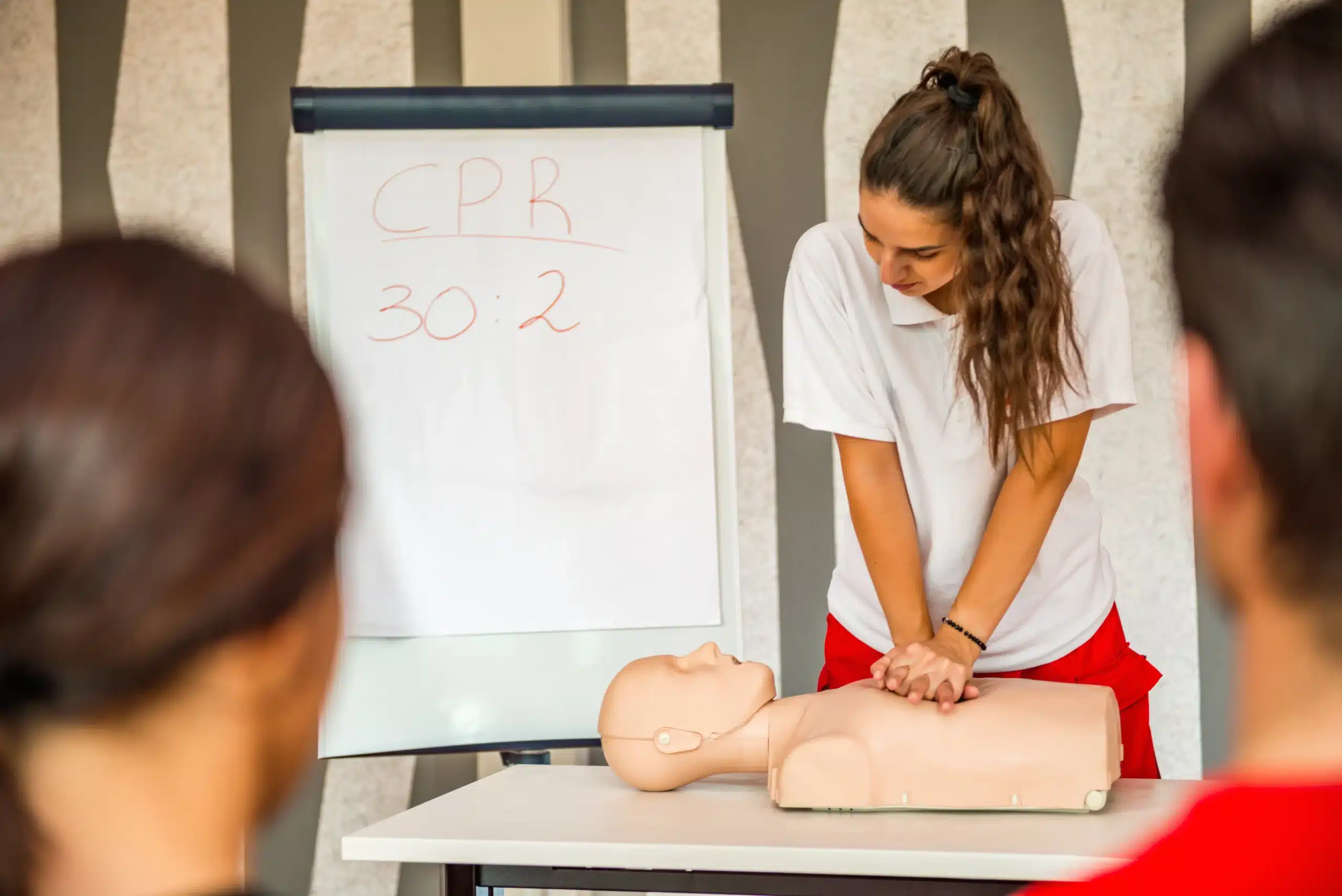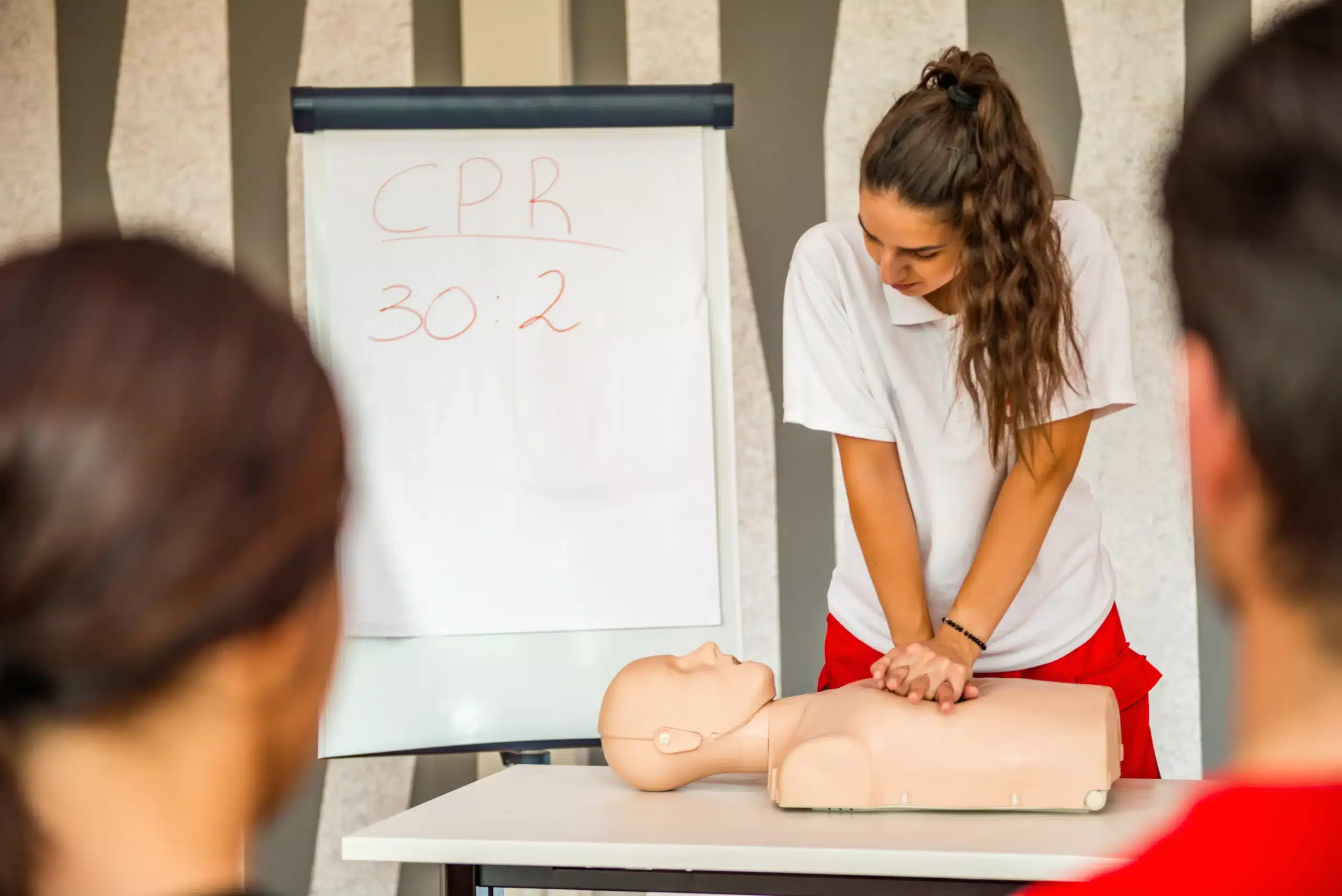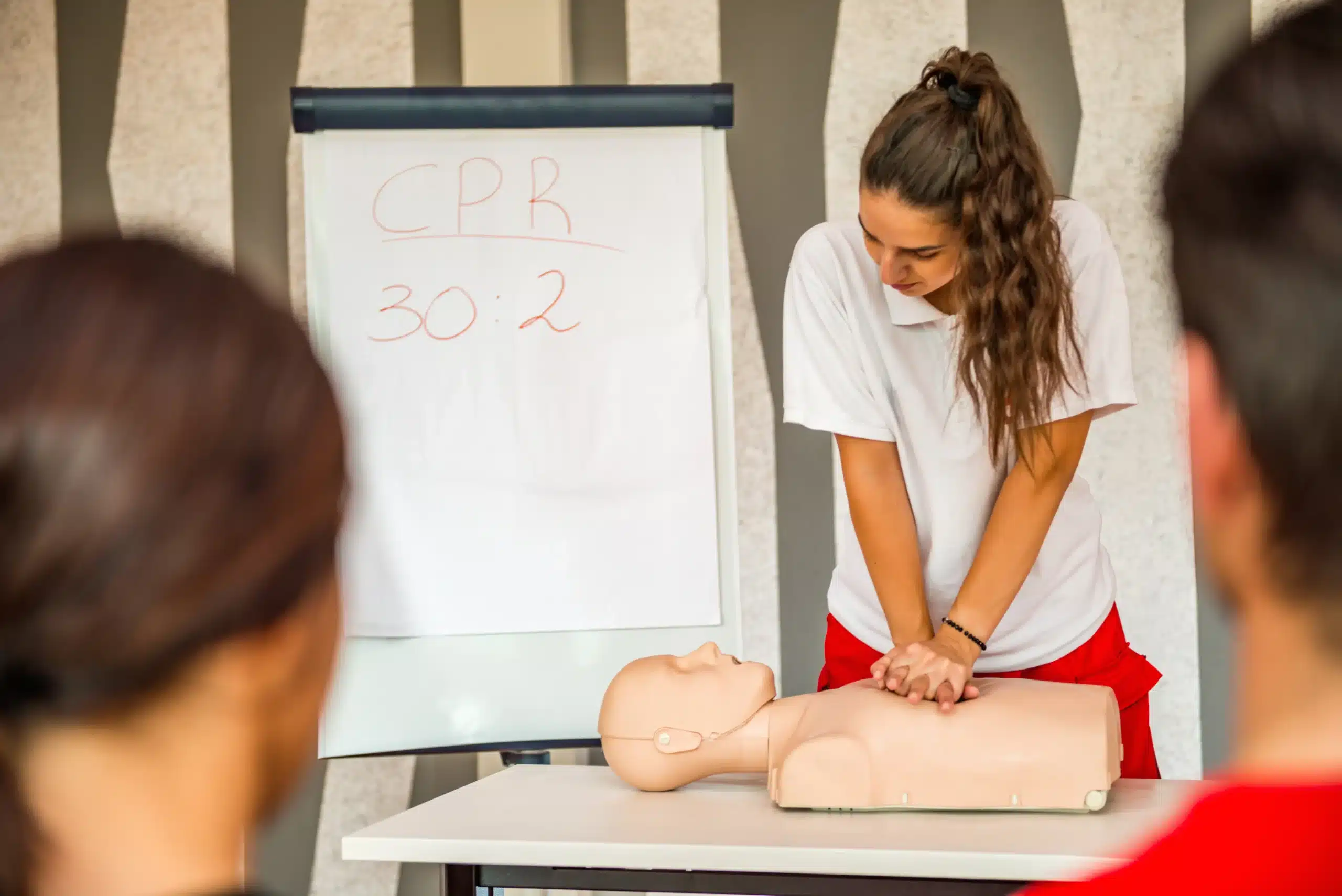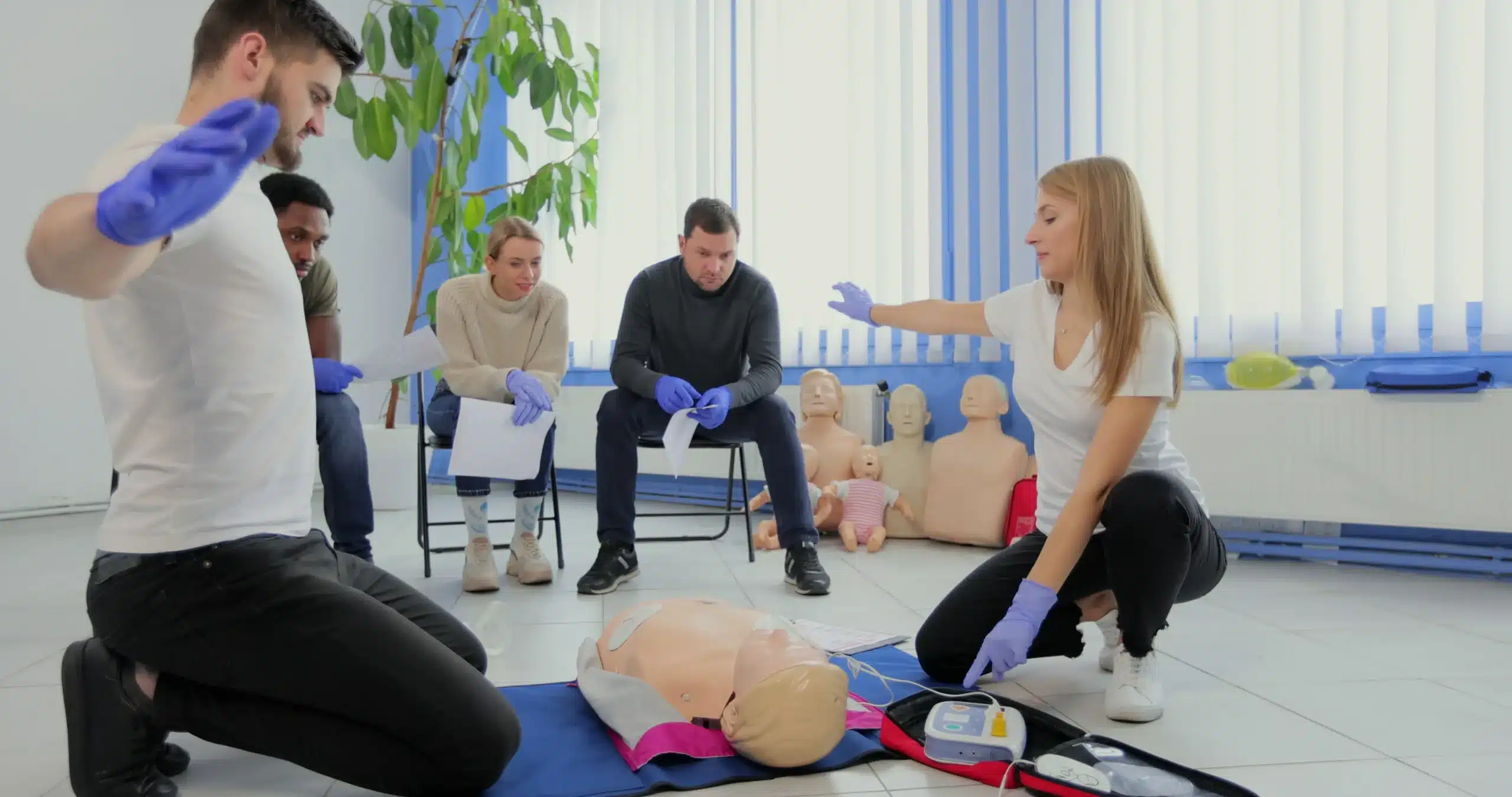Emergencies can happen anytime, anywhere. Being equipped to handle them isn’t just about knowing what to do—it’s about having the confidence to act quickly and effectively. That’s where BLS training comes in. BLS, or Basic Life Support, provides the foundational skills to respond to life-threatening situations, from cardiac arrest to choking. This guide is your roadmap to understanding BLS provider courses in Concord, covering everything from the basics of BLS to finding the right training program for you. Whether you’re a healthcare professional or simply someone who wants to be prepared, this guide will help you find the resources you need to become a confident and capable first responder.
Key Takeaways
- BLS certification empowers anyone to respond to emergencies: It’s a valuable skill set for healthcare providers, educators, childcare providers, workplace safety personnel, and anyone who wants to be prepared for a medical crisis.
- Affordable and accessible BLS courses are readily available: Explore various options in Concord, including Concord CPR Classes, to find a program that fits your schedule and budget. Prioritize AHA-certified courses for quality training.
- Maintaining BLS skills requires ongoing practice and education: Regularly refresh your knowledge and skills through practice and continuing education to stay current with the latest guidelines and ensure you’re always prepared to provide effective care.
What is BLS?
What is Basic Life Support (BLS)?
Basic Life Support (BLS) is a crucial set of life-saving medical procedures used in emergencies like cardiac arrest, choking, and respiratory distress. Think of it as the first line of defense in a crisis. BLS equips you with the skills to recognize these emergencies and provide immediate care. This often involves CPR to restore blood circulation, using an AED to restart the heart, and relieving choking. It’s about acting quickly and effectively when every second counts. BLS training emphasizes a safe and efficient approach, giving you the confidence to make a real difference.
Who Needs BLS Certification?
BLS certification is essential for anyone involved in patient care, from doctors and nurses to other healthcare providers. It ensures they can respond effectively during emergencies, directly impacting patient safety. BLS training covers core skills like CPR, AED use, and choking relief, empowering healthcare professionals to provide critical care in diverse medical settings. Beyond the medical field, BLS certification is valuable for anyone working with children, including childcare providers, educators, and camp counselors. It’s also a smart choice for those in roles like workplace safety personnel, lifeguards, and other community helpers. Essentially, BLS certification prepares you to handle emergencies and potentially save lives, wherever you are. If you’re looking for BLS certification in Concord, check out Concord CPR Classes for more information.
What Life Support Courses Are Available?
Basic Life Support (BLS)
Basic Life Support (BLS) gives you the skills to respond to life-threatening emergencies. These courses cover high-quality CPR, recognizing cardiac arrest, and other essential techniques. BLS certification is crucial for healthcare providers and anyone who wants to be prepared for an emergency. It equips you with the knowledge and confidence to act quickly and effectively when it matters most. Think of it as the foundation for more advanced life support training.
Advanced Cardiovascular Life Support (ACLS)
Advanced Cardiovascular Life Support (ACLS) builds on the fundamentals of BLS. It’s designed for healthcare professionals who manage or participate in treating cardiopulmonary arrest and other cardiovascular emergencies. ACLS courses cover life-saving techniques, including airway management, rhythm recognition, and effective team dynamics during resuscitation. This certification is essential for doctors, nurses, paramedics, and other medical personnel who regularly encounter these critical situations.
Pediatric Advanced Life Support (PALS)
Pediatric Advanced Life Support (PALS) focuses on the specific needs of infants and children facing medical emergencies. PALS certification is vital for healthcare providers, including doctors, nurses, and emergency responders, who work with young patients. These courses cover a range of pediatric emergencies, from respiratory distress and shock to cardiac arrest. PALS training emphasizes quick assessment, effective interventions, and age-appropriate care for children in crisis.
How Long Are the Courses?
Knowing the time commitment for BLS training helps you plan and choose the best course format for your schedule. While course length can vary, understanding the different learning options and what to expect will help you prepare.
In-Person vs. Online Learning
BLS courses typically involve a combination of online learning and in-person skills practice. The HeartCode BLS program blends online learning with hands-on sessions. This hybrid approach lets you complete the theoretical part at your own pace, offering flexibility for busy schedules and different learning styles. You’ll then demonstrate your skills in person.
Hands-On Practice
Hands-on practice is crucial for BLS training. You’ll learn essential skills like CPR, using an AED, and relieving choking for infants, children, and adults. This practical training ensures you’re prepared to respond confidently in real-life emergencies.
Skills Assessment and Materials
Most BLS courses include an online portion followed by in-person skills testing. Concord CPR Classes offers a streamlined process where you receive your certification card the same day, reinforcing what you’ve learned and providing immediate credentials. The BLS course equips professionals to recognize life-threatening emergencies and provide effective care, covering CPR, AED use, and choking relief. These courses usually last around 4–6 hours, depending on the provider and curriculum.
How Much Does BLS Training Cost?
Knowing the cost of BLS training helps you budget and plan for your certification. Let’s break down the typical expenses.
Course Fees and Expenses
BLS for Healthcare Providers courses in Concord, California, generally cost around $65, while renewal courses are typically around $60. Remember that prices can vary between training providers, so it’s always a good idea to check with a specific provider for their most up-to-date pricing. For example, you can find BLS course information from nearby Brentwood CPR classes to compare.
Benefits of Life-Saving Skills
While there’s a monetary investment involved in BLS training, the value of acquiring these life-saving skills is immeasurable. BLS training equips you to respond effectively in emergencies, giving you the confidence to act quickly and decisively when every second counts. This training emphasizes a safe, timely, and effective approach to providing aid. Knowing you can make a difference in a critical situation is a reward in itself.
How Do You Get Certified?
American Heart Association Certification
The American Heart Association (AHA) sets the standard for high-quality CPR and BLS training. The BLS Healthcare Provider course equips healthcare professionals with the skills to recognize life-threatening emergencies. You’ll learn how to perform CPR, use an AED, and relieve choking safely and effectively. Finding the right program is crucial, and Concord offers excellent choices for AHA-certified training. Concord CPR Classes provides comprehensive instruction and certification, ensuring you receive the best possible preparation for real-world scenarios. This includes a focus on building confidence and proficiency in essential life-saving techniques.
Renewing Your Certification
It’s a common misconception that BLS certification is a one-time requirement. Maintaining your skills and staying up-to-date with the latest guidelines requires regular renewal. BLS certification typically lasts for two years. Don’t let your certification lapse—staying current ensures you’re always prepared to provide effective care. Regular renewal courses reinforce your knowledge and introduce any updated procedures, keeping your skills sharp and your confidence high. This commitment to ongoing training demonstrates your dedication to providing the highest standard of care.
Where Can You Get BLS Training in Concord?
Finding the right BLS training program is an important step. Here are a few options to explore in and around Concord:
Concord CPR Classes
Concord CPR Classes offers American Heart Association BLS Certification. They provide a range of courses, including BLS, ACLS, and PALS certification, so you can find the training you need in one place. They also offer discounted group rates which can be a great option for workplaces or groups of friends. Serving Concord, Walnut Creek, and Pleasant Hill, their central location makes them accessible for residents of these communities. For healthcare providers seeking a fast-tracked renewal option, they also offer the RQI program.
Safety Training Seminars
Safety Training Seminars offers comprehensive training and certification in BLS, ACLS, PALS, CPR, and First Aid. This local access makes training convenient for busy professionals and residents in Concord and nearby areas. Check their website for course schedules and availability.
Concord CPR Training Center
The Concord CPR Training Center’s BLS Healthcare Provider course focuses on equipping healthcare professionals with the skills to recognize and respond to life-threatening emergencies. Their training covers CPR, AED use, and choking relief. This course is specifically designed for those in the healthcare field.
American Red Cross Concord Chapter
The American Red Cross also offers BLS certification courses in Concord. Their program emphasizes building confidence and preparedness for crisis situations. In addition to BLS, they offer a variety of other safety training courses. Be sure to confirm the location as they have chapters nationwide.
When Are Classes Available?
Class Schedules and Registration
Concord CPR Classes offers a comprehensive selection of courses, including BLS, ACLS, and PALS certification, with classes available daily. Most courses use a blended learning approach, combining online coursework with in-person skills testing. This allows you to complete the theoretical part online at your own pace and then schedule the hands-on skills session when it’s most convenient. You’ll receive your certification card the same day you complete your in-person skills check. Learn more about our class schedules and register for a course.
Group Training
Concord CPR Classes specializes in on-site group training and offers flexible scheduling and discounted prices for businesses and organizations. Group training is ideal for groups of six or more and makes it easy for companies to train multiple employees at once. They offer group training options for CPR, First Aid, ACLS, PALS, and NRP (Neonatal Resuscitation Program). Contact Concord CPR Classes to discuss your group’s specific training needs and schedule a session that fits your team’s availability.
Who Benefits from BLS Training?
BLS training isn’t just for medical professionals—it’s a valuable skill set for anyone who wants to be prepared for an emergency. Knowing how to perform CPR, use an AED, and relieve choking can make a real difference in life-or-death situations. Let’s look at some of the groups who particularly benefit from
Healthcare Professionals
For healthcare providers like doctors, nurses, and EMTs, BLS training is essential. It equips them with the core skills to respond to cardiac arrest, respiratory distress, and other emergencies. In fast-paced medical environments, quick, effective action is crucial, and BLS certification provides the foundation for that response. It covers techniques like CPR, AED use, and how to manage choking, ensuring they can deliver immediate care.
Educators and Childcare Providers
Teachers, daycare workers, and other childcare providers are entrusted with the safety of children, making BLS certification incredibly important. They need to be prepared to handle emergencies involving children, which can range from choking incidents to sudden cardiac events. BLS training gives them the skills to recognize warning signs, perform CPR tailored to infants and children, and provide basic airway management. This preparedness creates a safer environment for the children in their care.
Workplace Safety Personnel
In any workplace, emergencies can happen. Having trained safety personnel on hand can significantly improve outcomes. BLS training for these individuals covers a wide range of emergency responses, from providing first aid to administering CPR. This training empowers them to act confidently and effectively in critical situations, ensuring a safer work environment for everyone.
How Do You Maintain Your BLS Certification?
Maintaining your BLS certification isn’t a one-and-done deal. It requires staying current with the latest guidelines and keeping your skills fresh. Think of it like renewing your driver’s license—you need to demonstrate competency periodically. This ongoing commitment ensures you’re always prepared to provide effective, life-saving care.
Refreshing Your Skills
Regularly practicing your BLS skills is key. Hands-on training and simulations create muscle memory, so you can respond efficiently in a real emergency. Don’t let your skills get rusty. Consider refresher courses or practice sessions to stay sharp and confident in your abilities. It’s important to understand that regular skill refreshment is crucial for maintaining proficiency in BLS. Many healthcare providers mistakenly believe that BLS certification is a one-time requirement, but ongoing practice is essential.
Continuing Education
The medical field is constantly evolving, with new research and best practices emerging all the time. Continuing education ensures you’re always equipped with the most current knowledge and techniques. This commitment to lifelong learning not only benefits your patients but also enhances your professional development. Some people mistakenly think that having CPR training eliminates the need for BLS certification. However, BLS certification goes beyond basic CPR, covering essential skills for healthcare providers, such as using an AED and performing two-rescuer CPR. Recognizing the importance of ongoing education empowers you to deliver the highest quality of care. BLS training is important for everyone to learn how to save lives during emergencies. Continuing education allows healthcare professionals to enhance their life-saving capabilities.
Related Articles
- BLS Certification Near Me: Your Complete Guide – Concord CPR Classes
- BLS Training Near Me: A Practical Guide – Concord CPR Classes
- BLS for Healthcare Providers in Concord: A Complete Guide – Concord CPR Classes
- Basic Life Support Instructor Course: Everything You Need to Know – Concord CPR Classes
- BLS Renewal Near Me: Find the Right Course for You – Concord CPR Classes
Frequently Asked Questions
What does BLS cover, and why is it important? BLS covers essential life-saving techniques, including high-quality CPR, AED use, and relieving choking. It’s the foundation for responding to medical emergencies like cardiac arrest and respiratory distress. These skills empower you to provide immediate care, potentially bridging the gap until professional medical help arrives. Whether you’re a healthcare professional or someone who wants to be prepared for any situation, BLS equips you to make a difference.
Which BLS certification is right for me? The right BLS certification depends on your role and responsibilities. The American Heart Association offers several levels of BLS certification, including BLS for Healthcare Providers, BLS for Heartsaver CPR AED, and BLS for Heartsaver First Aid CPR AED. If you’re a healthcare professional, the Healthcare Provider course is essential. For those outside the medical field, the Heartsaver courses provide valuable life-saving skills tailored to community and workplace settings. Consider your specific needs and choose the course that aligns with your goals.
How can I fit BLS training into my busy schedule? Many BLS training providers offer flexible options to accommodate busy schedules. Blended learning formats combine online coursework with in-person skills sessions, allowing you to complete the theoretical part at your own pace. This approach provides convenience and flexibility, making it easier to fit BLS training into your life. Check with your chosen provider for specific scheduling options and course formats.
What can I expect during the hands-on BLS skills session? The hands-on portion of BLS training focuses on practical application. You’ll practice essential skills like CPR on adult, child, and infant mannequins, learn how to use an AED, and practice relieving choking. Instructors provide guidance and feedback, ensuring you develop the confidence and proficiency to perform these skills effectively in real-life scenarios. This interactive training reinforces the knowledge you gained during the online coursework.
How do I renew my BLS certification, and why is it necessary? BLS guidelines and best practices are regularly updated to reflect the latest medical research. Renewing your certification ensures you stay current with these changes and maintain your skills. Most BLS certifications are valid for two years. Renewal typically involves completing a refresher course that covers any updates and reinforces core skills. Staying certified demonstrates your commitment to providing high-quality care and ensures you’re always prepared to respond effectively in an emergency.


